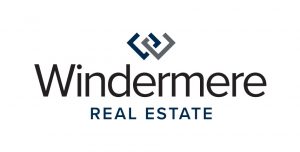Are You Paying Too Much for Property Taxes?

OK nobody panic, but it’s almost…TAX TIME. For Washington State homeowners, this means you’ve probably received a little postcard letting you know your property’s assessed value and taxes due for 2025. Those with a mortgage on their home may be tempted to file this away and let the bank take care of it (after all, that’s what your mortgage escrow fund is for). However, everyone should take a close look no matter who is writing the check—you may be over-paying taxes if your home’s assessment is above fair market value. You or a loved one who is a low-income senior or disabled may also be paying too much if you haven’t taken advantage of available exemptions. Read on for solutions to these issues as well as important deadlines to keep you on track. (Looking for income tax tips, too? Check out this article for homeowners.)
Assessments & Valuation | Exemptions & Deferrals | Important Dates
Assessments & Valuation
Each county has an assessor tasked with appraising real property at its true and fair market value, according to the highest and best use of the property. Fair market value is defined as, “the amount that a willing and unobligated buyer is willing to pay a willing and unobligated seller.” While three appraisal methods are accepted, the most common approach is to estimate value based on sales of similar properties. This is known as the Market or Sales Comparison approach and is typically pretty accurate. In fact, it’s what real estate agents use when they prepare CMA valuation estimates.
However, the county’s assessed value can be incorrectly high for a number of reasons. For example, if your property suffered recent damage or depreciation that wasn’t taken into account (physical inspections are only required once every six years). The highest and best use might also be incorrect, such as vacant land that is assessed as develop-able but in fact cannot support a septic system.
If you feel your assessment is too high, there are a number of steps you can take. A good first step is to contact your local county assessor’s office. You can request copies of the comparable sales that were used to appraise your property’s value, and can also inform them of any errors or information that should have been taken into account. Disagreements are often settled at this level without any further action needed.
If you can’t come to a resolution with the assessor, the next step would be to file an appeal with your county’s board of equalization (BOE). If you or the assessor disagrees with the BOE’s decision, it can then be appealed to the State Board of Tax Appeals (BTA). In some cases, the decision made by the BTA can also be appealed in Superior Court. Keep in mind that any appeal you make will require you to provide market evidence that the assessed value does not truly reflect the fair market value.
Exemptions & Deferrals
Low-income senior homeowners who are age 61+ or people unable to work due to a disability (or their surviving spouses/domestic partners age 57+) may be eligible for a property tax exemption. This lowers the amount of taxes that are owed each year. For King County, the maximum income is $84,000 (find income guidelines for other counties here).
Seniors, low-income or disabled people who don’t meet the guidelines for an exemption may still be eligible for a property tax deferral. While this doesn’t reduce the taxes owed, it does allow you to defer taxes (including special assessments and back taxes) as a lien on the property that can be repaid either as funds become available or when the property is sold. 5% interest is assessed on the deferred amount.
Find application info plus more property tax relief programs in this article on Property Tax Relief Programs.
Important Dates
January 1st: Property is valued for taxes due in the next year.
March 31st: Applications are due for the Senior/Disabled Deferral and Widow/Widower Assistance.
April 30th: The first half of property taxes are due (or full amount if you owe less than $50).
May 1st: 1% per month (12% per annum) is assessed on any overdue taxes.
June 1st: A 3% penalty is assessed for any overdue taxes in the current year.
July 1st: Deadline to file an appeal with the County Board of Equalization (BOE) for the current year’s assessment (or 30 days from the date of notification if it’s later).
August 31st: New construction is placed on the assessment roll based on the valuation determined July 31st.
September 1st: Applications for the Limited Income Deferral are due.
October 31st: The second half of property taxes are due.
December 1st: An 8% penalty is assessed for any overdue taxes in the current year.
December 31st: Property tax exemption applications are due for seniors and those with disabilities.
For more info, contact the Washington State Department of Revenue at dor.wa.gov or (360) 705-6705. You can also find a lot of great info in their Homeowner’s Guide to Property Tax publication.
Psst…I love giving you these helpful tips but they can’t replace the advice of your tax professional. Reach out to your pro for counsel on the best course of action for your unique situation.

We earn the trust and loyalty of our brokers and clients by doing real estate exceptionally well. The leader in our market, we deliver client-focused service in an authentic, collaborative, and transparent manner and with the unmatched knowledge and expertise that comes from decades of experience.
© Copyright 2025, Windermere Real Estate/Mercer Island.
Tax Benefits Every Homeowner Should Know About

It’s tax season again, but being a homeowner might just make it rain at refund time. Check out the tax-deductible expenses, exemptions, and credits below. Whether you own a house, condo, or mobile home, they can save you big money when you file. Just be sure to compare your total itemized deductions against the standard deduction and see which is higher (you’ll have to choose between standard OR itemized on your return). It’s also good to know what you can’t deduct before you land in hot water with the IRS…
Mortgage Interest
A house payment is comprised of two parts: principal and interest. The principal goes toward reducing the amount you owe on your loan and is not deductible. However, the interest you pay is deductible as an itemized expense on your tax return. You can generally deduct interest on the first $750,000 of your mortgage (or $375,000 each if you’re married filing separately) if you purchased your home after December 15th 2017. Those who purchased earlier (10/14/1987 – 12/15/2017) can deduct interest paid on up to a $1m mortgage.
Property Taxes
You can deduct up to $10,000 of property taxes you paid (or $5,000 if you’re married filing separately). If you have a mortgage, the amount you paid in taxes will be included on the same annual lender statement that shows your loan interest information. If you paid the property taxes yourself but don’t have receipts, you should be able to locate the total tax amount on your county assessor’s website.
Home Improvements
Making improvements on a home can help you reduce your taxes in a few possible ways:
- If using a home equity loan or other loan secured by a home to finance home improvements, these loans will qualify for the same mortgage interest deductions as the main mortgage. Only the interest associated with the first $100,000 is deductible (and if you’ve already maxed out the interest deduction on your main mortgage, you won’t be eligible for any additional deduction for this loan).
- Tracking home improvements can help when the time comes to sell. If a home sells for more than it was purchased for, that extra money is considered taxable income. However, you are allowed to add capital improvements to the cost/tax basis of your home thereby reducing the amount of taxable income from the sale. Keep in mind that most taxpayers are exempted from paying taxes on the first $250,000 (for single filers) and $500,000 (for joint filers) of gains.
- Home improvements made to accommodate a person with a disability (yourself, your spouse, or your dependents who live with you) may be deductible as medical expenses. Examples include adding ramps, widening doorways/hallways, installing handrails or grab bars, lowering kitchen cabinets, or other modifications to provide wheelchair access.
- If you live in Washington State and apply with your county prior to construction, you may be able to get a 3-year property tax exemption for major home improvements (including an ADU or DADU) that add up to 30% of the original home’s value.
Home Office Deduction
If you run a business out of your home, you can take a deduction for the room or space used exclusively for work as your principal place of business. This includes working from a garage, as well as a typical office space. Unlike most of the other deductible expenses, you can deduct home office expenses even if you opt to take the standard deduction.
This deduction can include expenses like mortgage interest, insurance, utilities, and repairs, and is calculated based on “the percentage of your home devoted to business use,” according to the IRS.
Home Energy Tax Credits
For homeowners looking to make their primary home a little greener, either the Energy Efficient Home Improvement Credit or the Residential Energy Clean Property Credit can help offset the cost of energy efficiency improvements. Even better, these are credits, which means they directly lower your tax bill.
- Energy Efficient Home Improvement Credit: 30% of the cost for qualified high-efficiency doors, window, insulation, air conditioners, water heaters, furnaces, heat pumps, etc. Maximum credit of $1,200 (heat pumps, biomass stoves and boilers have separate max of $2,000).
- Residential Clean Energy Credit: 30% of the cost for adding qualified solar/wind/geothermal power generation, solar water heaters, fuel cells, and battery storage.
What You Can’t Deduct:
- Mortgage Insurance (this is a change as of 2022)
- Title Insurance
- Closing Costs
- Loan Origination Points
- Down Payment
- Lost Earnest Money
- Homeowner’s Dues*
- Homeowner’s/Fire Insurance*
- Utilities*
- Depreciation*
- Domestic staff or services*
*Unless it’s related to your home-office deduction—contact your tax pro to see if it’s a qualified deduction for you.
Do you have a low-income, disabled or senior homeowner in your life? Check out this article on King County property tax relief.
Psst…every homeowner’s financial situation is different, so please consult with a tax professional regarding your individual tax liability.

We earn the trust and loyalty of our brokers and clients by doing real estate exceptionally well. The leader in our market, we deliver client-focused service in an authentic, collaborative, and transparent manner and with the unmatched knowledge and expertise that comes from decades of experience.
© Copyright 2024, Windermere Real Estate/Mercer Island.
Adapted from an article that originally appeared on the Windermere Blog, written by: Chad Basinger.

 Facebook
Facebook
 X
X
 Pinterest
Pinterest
 Copy Link
Copy Link

